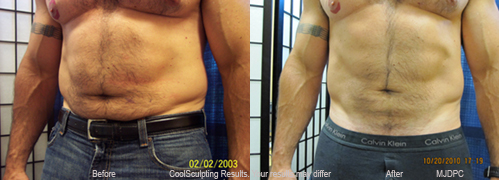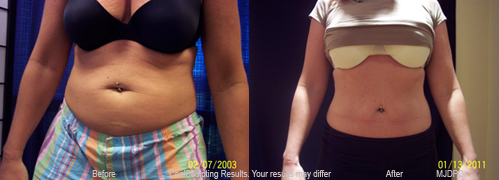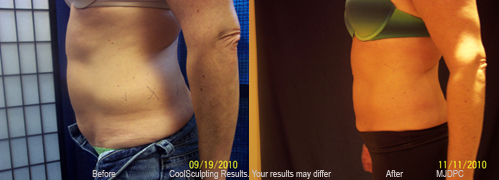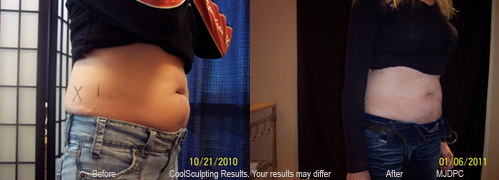We all know people who are physically fit with stable weight that still complain about bulges, rolls, and other small areas of fat they can't get rid of no matter how much they exercise or diet.Spot reducing without surgery is practically impossible for many of us.
Dr. Andrew Hendricks is one of the first cosmetic surgeons in America trained in the new, non-surgical procedure developed by Zeltiq™ called CoolSculpting® for patients in North Carolina, South Carolina, and surrounding states. CoolSculpting was developed by Harvard scientists to permanently remove excess fat by a freezing technique. For body contouring without surgery, CoolSculpting is a completely non-invasive procedure used to reduce fat in targeted areas.

How does CoolSculpting work?
Temperature changes affect the cells in our body in different ways. The research performed at Harvard has helped us better understand that body contouring or fat reduction can be accomplished by lowering the temperature of fat cells to near freezing.
During the procedure the fat is sucked into a handheld applicator that targets the deeper fat cells and then cools them to near freezing without damaging the skin surface. This causes an inflammatory response by the body causing it to naturally dispose of the damaged fat cells. Over the course of about 2 - 4 months they slowly disappear and patients see a significant improvement in the shape of their body.

Who are the best candidates for CoolSculpting?
CoolSculpting is more of a cosmetic benefit than a solution for those who want to lose a lot of weight, as only localized fat deposits are targeted. The best candidates for this fat reducing technique are patients in relatively good shape, with modest areas of fat bulges that they’d like removed.

What areas respond the best to CoolSculpting?
The procedure produces consistent results for local areas of fat like love handles, back rolls, enlarged male breasts and abdominal fat.
Are the CoolSculpting results permanent?
The treated fat cells are eliminated with CoolSculpting. Your results should remain stable as long as you maintain your weight with diet and exercise.
CoolSculpting benefits include: - No downtime
- No anesthesia required
- No surgery
- Minimal discomfort; most patients watch TV, use a provided iPad, read, or sleep during the procedure
The Procedure
The CoolSculpting procedure is usually performed in the office under the supervision of Dr. Andrew Hendricks. It does not require anesthesia. During the procedure, a mild vacuum draws the targeted fatty tissue into the applicator between the cooling panels delivering precisely controlled cooling to the fat cells. This process has been proven to target and eliminate fat cells in specific areas of the body. The freezing temperatures trigger a natural process that gradually reduces the thickness of the fat layer over time. Each area with excess fat is treated for one hour. Depending on the number of treatment areas, the procedure can last from one to three hours or more. Following treatment, patients may immediately return to all of their normal daily activities.

Results with CoolSculpting
The chilled fat cells begin a process called “apoptosis” and begin to shrink after several days. The results of the CoolSculpting procedure are usually visible 2 - 4 months after treatment, and will continue to improve for up to six months. The damaged fat cells are slowly digested through your liver over several months. CoolSculpting can result in a reduction of up to 25% of the treated fat cells. Additional treatments could result in an additional 20% reduction, resulting in a total fat loss of up to 45%. Repeat treatments can be performed after 2 - 4 months depending on our doctor’s advice.
Are there risks to CoolSculpting?
Since CoolSculpting is a non-invasive procedure, it has considerably fewer risks than other fat reduction procedures. Although CoolSculpting is considered safe for most patients, there are certain risks associated with any kind of treatment. These risks may include some bruising and redness as well as some reduced sensation in the treated area. These side effects usually go away on their own within a few days after treatment.